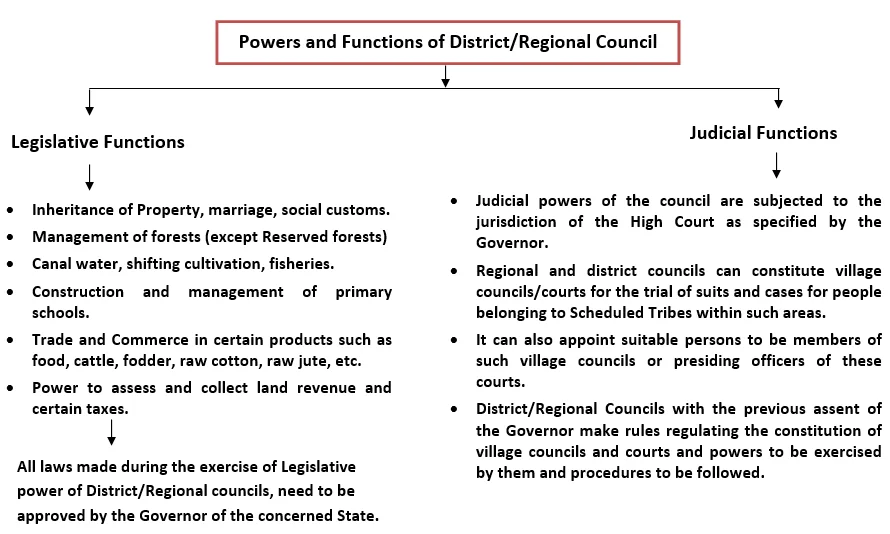![]() March 26, 2024
March 26, 2024
![]() 5935
5935
![]() 0
0
The Sixth Schedule of the Indian Constitution pertains to the administration of tribal areas in certain northeastern states, namely Assam, Meghalaya, Tripura, and Mizoram. This schedule delineates special provisions for governance, administration, and preservation of the cultural identity and rights of the indigenous tribal populations residing in these regions.
| States | Tribal Areas | States | Tribal Areas |
| 1. Assam | 1. The North Cachar Hills District.
2. The Karbi Anglong District. 3. The Bodoland Territorial Areas District |
3. Meghalaya | 1. Khasi Hills District.
2. Jaintia Hills District. 3. The Garo Hills District |
| 2. Tripura |
|
4. Mizoram | 1. The Chakma District.
2. The Mara District. 3. The Lai District. |
Features of Administration as per 6th Schedule
Powers & Functions of District & Regional Councils

Conclusion
<div class="new-fform">
</div>

Latest Comments